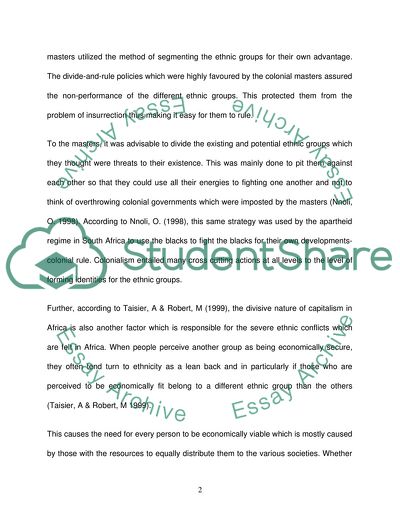Cite this document
(Ethnicity Conflict in Zimbabwe Term Paper Example | Topics and Well Written Essays - 2000 words, n.d.)
Ethnicity Conflict in Zimbabwe Term Paper Example | Topics and Well Written Essays - 2000 words. Retrieved from https://studentshare.org/history/1712220-tribalismethnicism-in-zimbabwe
Ethnicity Conflict in Zimbabwe Term Paper Example | Topics and Well Written Essays - 2000 words. Retrieved from https://studentshare.org/history/1712220-tribalismethnicism-in-zimbabwe
(Ethnicity Conflict in Zimbabwe Term Paper Example | Topics and Well Written Essays - 2000 Words)
Ethnicity Conflict in Zimbabwe Term Paper Example | Topics and Well Written Essays - 2000 Words. https://studentshare.org/history/1712220-tribalismethnicism-in-zimbabwe.
Ethnicity Conflict in Zimbabwe Term Paper Example | Topics and Well Written Essays - 2000 Words. https://studentshare.org/history/1712220-tribalismethnicism-in-zimbabwe.
“Ethnicity Conflict in Zimbabwe Term Paper Example | Topics and Well Written Essays - 2000 Words”. https://studentshare.org/history/1712220-tribalismethnicism-in-zimbabwe.


